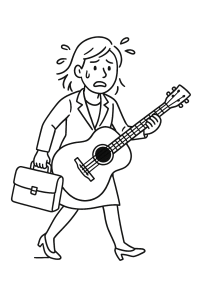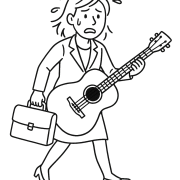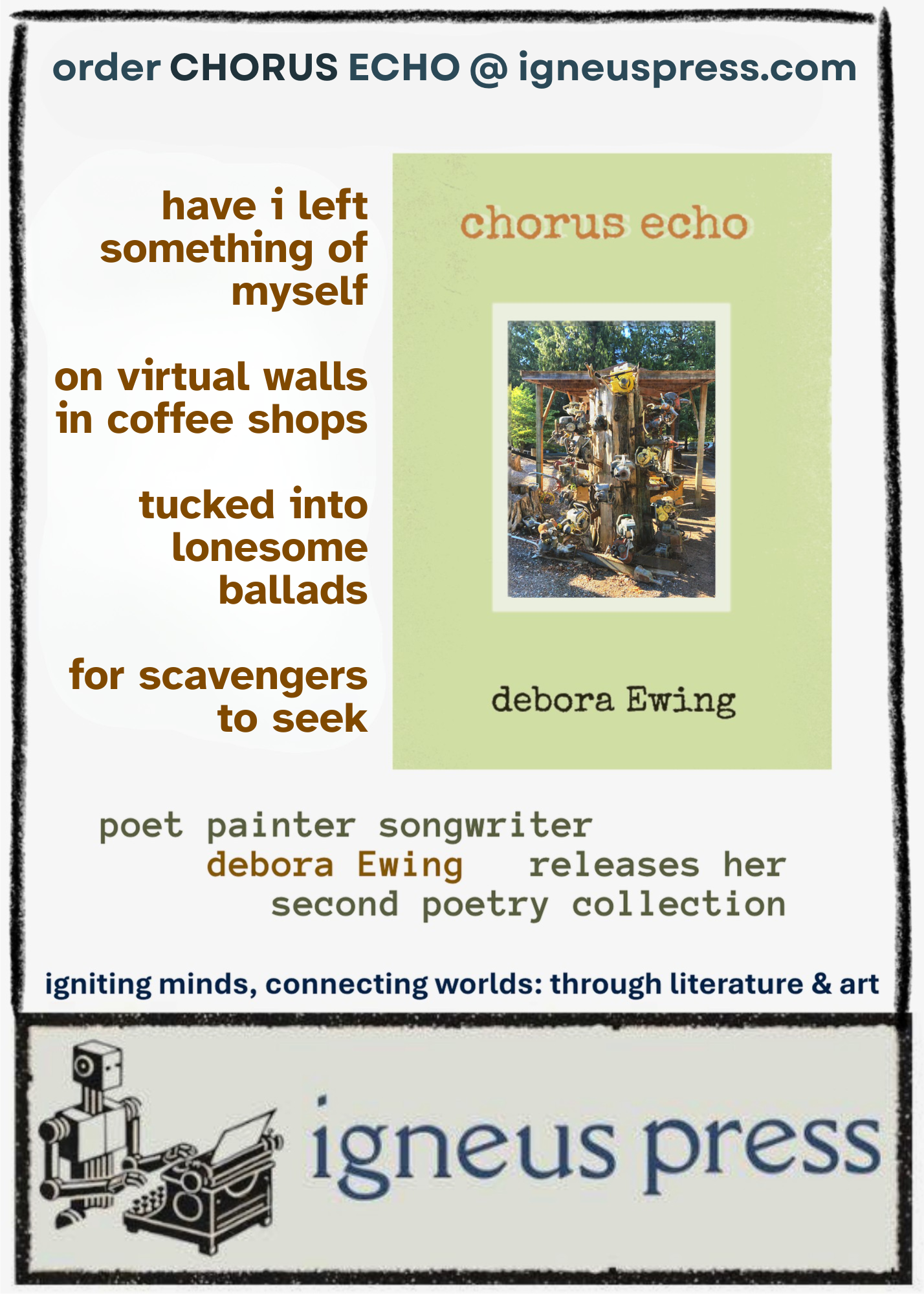The Business of Music – How to Get Seen, Heard and Hired
Food for Thought
 I was recently asked to give a talk to a college class. The subject of the class was the business of music. The idea was for me to talk about my experience selecting artists to play on my weekly radio show, for the concert series that I book, and for a couple of scholarship and fellowship selection committees that I’m on.
I was recently asked to give a talk to a college class. The subject of the class was the business of music. The idea was for me to talk about my experience selecting artists to play on my weekly radio show, for the concert series that I book, and for a couple of scholarship and fellowship selection committees that I’m on.
So, the basic questions were: How do you get played on the radio? How do you get booked for a gig? Of course, no one listens to the radio anymore—but I think, like vinyl, it’s experiencing a comeback, at least among a certain group of independent touring artists. Since no one buys CDs anymore, that revenue stream has dried up for most performers, and they are now dependent on live gigs for their income. Radio play and its attendant announcements of gigs seem to be an effective way for touring artists to get the word out locally when they’re going to appear.
I thought I would reiterate here some of the wisdom I tried to share with the students. Wisdom, of course, is in the eye of the beholder. As the saying goes, your experience may vary.
Most independent working musicians quickly realize that being a musician means running a business—and they are the product. The creative part of being a singer-songwriter—that is, writing songs and singing them—constitutes only a small percentage of the work and necessary roles involved. Artists either have to take on or hire others for roles such as producer, business manager, publicist, and many more.
So, how do you get noticed—get heard? There are two parts to this: the art and the business. The art is the product you are selling, so it must be the best you can make it. After all, every business, especially an emerging one, needs a great product. For singer-songwriters, that means a song that captures the moment, tells a story, is compelling, and makes it personal. It must resonate both intellectually and emotionally.
Once you have that great song—that great product—you need to sell it. That’s the business side. Unfortunately, the reality is that to make a living in music, the business side will take up most of your time and energy. The professional touring musician needs to be producer, sound engineer, publicist, social media guru, booking agent, tour manager, and—perhaps most importantly—business manager.
So, how do you get seen, heard, and hired? From my experience hosting a weekly radio show, booking concerts, and participating on selection committees, a few things stand out. Do your homework. Know your audience—that is, know who you are pitching to and what they like or need. And make it easy for them—I cannot emphasize that enough.
I do not need a four-page essay about your personal journey or two pages of quotes from your friends about how wonderful you and your music are. I get 12 to 20 new albums each week, and I simply do not have the time to read all that and also listen to a few of your songs. So make it easy: give me a track list with no more than two sentences about each song, a short paragraph bio and project description (if relevant), and a link to an MP3 download with complete metadata. It’s amazing how many artists don’t include their own name on the digital track—all that work and creativity, and you can’t put your name on it? Be sure to note any possible FCC issues. This is terrestrial radio (although everything is streamed), and yes, the FCC is a bit prudish, so don’t get your DJ in trouble.
At the end of my presentation, I gave the students a class problem: Assume you are a professional musician who has just released your first album and are setting up a tour to promote it. You contact me to inquire about getting booked on my concert series. After reviewing your album and checking some videos, I make you this offer: I have a 60-seat listening room, and I will give you 75% of the gate—you can set the ticket price. Do you take the deal, and if so, at what ticket price?
This led to a lively discussion, with everyone eager to accept the deal at ticket prices that almost guaranteed they would lose money based on travel and related costs to say nothing of the sunk costs of producing the album. And they all seemed to assume that all 60 tickets would sell and that exposure was more important than income.
Ah, so much to learn.
Ron Cooke is the author of a book of short stories and poems entitled Obituaries and Other Lies (available at Amazon); writes a well-received blog (ASSV4U.com/blog); and hosts a weekly radio show called Music They Don’t Want You to Hear on KTAL-LP in Las Cruces, NM. He is also a founding director of A Still Small Voice 4U, a not for profit supporting arts, culture and community that presents folk concerts, sponsors artists, festivals and community groups. Ron is an avid cyclist, racer, blogger, sculptor and ne’er-do-well.
The Business of Music – How to Get Seen, Heard and Hired
Food for Thought







